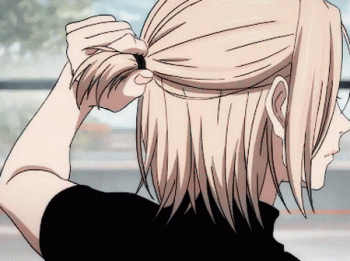Seasonal changes can significantly impact the health and appearance of your hair. The shift from humid summers to dry winters, or the transitional periods of spring and autumn, can lead to a variety of hair issues such as dryness, frizz, and breakage. Understanding how to adjust your hair care routine to accommodate these changes is key to maintaining healthy, vibrant hair year-round. Here are ten essential tips to keep your hair in top condition through every season.
1. Hydrate, Hydrate, Hydrate
Why It’s Important: During the colder months, the air becomes dry, which can strip moisture from your hair, leading to dryness and brittleness.
How to Do It: Use a hydrating shampoo and conditioner designed for your hair type. Incorporate a weekly deep conditioning treatment to replenish moisture. Ingredients like argan oil, shea butter, and aloe vera are excellent for hydration. Additionally, don’t forget to drink plenty of water, as internal hydration plays a crucial role in hair health.
2. Adjust Your Hair Washing Routine
Why It’s Important: Over-washing your hair can strip it of its natural oils, especially during dry seasons.
How to Do It: In colder months, reduce the frequency of hair washing to retain natural oils. Aim to wash your hair two to three times a week. Use a mild, sulfate-free shampoo to avoid stripping away essential oils. During the humid summer months, you might need to wash more frequently, but always ensure you’re using a moisturizing conditioner to balance any dryness.
3. Protect Your Hair from the Elements
Why It’s Important: Harsh weather conditions like cold winds, snow, or excessive sun exposure can damage your hair.
How to Do It: In winter, wear a hat or scarf to protect your hair from cold winds and snow. Opt for silk or satin linings to reduce friction. In the summer, protect your hair from UV rays by wearing a hat or using hair products with UV protection. For added protection, consider leave-in conditioners or hair oils that create a barrier against environmental damage.
4. Trim Regularly
Why It’s Important: Regular trims help to eliminate split ends and prevent further breakage, keeping your hair looking healthy and fresh.
How to Do It: Schedule a trim every 6-8 weeks to maintain the health of your hair. This practice is beneficial throughout the year, but particularly important during seasonal changes when hair can be more prone to damage.
5. Use a Humidifier
Why It’s Important: Indoor heating during the winter months can create a dry environment, which can dry out your hair and scalp.
How to Do It: Use a humidifier in your home to add moisture to the air. This helps to keep your hair and skin hydrated. Place the humidifier in rooms where you spend the most time, such as your bedroom or living room.
6. Switch to a Silk or Satin Pillowcase
Why It’s Important: Cotton pillowcases can cause friction, leading to hair breakage and split ends.
How to Do It: Invest in a silk or satin pillowcase. These materials are gentler on your hair, reducing friction and helping to maintain moisture. This is particularly beneficial during dry seasons when hair is more prone to breakage.
7. Limit Heat Styling
Why It’s Important: Excessive heat styling can damage your hair, making it more susceptible to breakage and dryness.
How to Do It: Reduce the use of heat styling tools such as blow dryers, straighteners, and curling irons. When you do use them, apply a heat protectant spray to minimize damage. Embrace natural hairstyles that require less heat, especially during extreme weather conditions.
8. Nourish Your Hair from Within
Why It’s Important: Healthy hair starts from the inside. A balanced diet provides essential nutrients that promote hair health.
How to Do It: Incorporate foods rich in vitamins and minerals into your diet. Omega-3 fatty acids, found in fish and flaxseed, are excellent for hair health. Vitamins A, C, D, and E, as well as iron and zinc, are also crucial. Consider taking a multivitamin or a hair-specific supplement if necessary.
9. Avoid Hot Showers
Why It’s Important: Hot water can strip your hair of natural oils, leading to dryness and scalp irritation.
How to Do It: Wash your hair with lukewarm water instead of hot water. Rinse with cool water to seal the hair cuticle and add shine. This practice helps to retain moisture and maintain the health of your hair and scalp.
10. Customize Your Hair Care Products
Why It’s Important: Different seasons require different hair care products to address specific needs such as moisture, frizz control, and protection.
How to Do It: In winter, opt for moisturizing shampoos and conditioners, as well as leave-in conditioners and hair oils. In summer, use lighter products that won’t weigh your hair down. Look for anti-frizz serums and sprays with UV protection. Always choose products that are suited to your hair type and specific needs.
Conclusion
Maintaining healthy hair through seasonal changes requires a proactive approach and a willingness to adjust your routine as needed. By following these ten essential tips, you can ensure that your hair remains strong, shiny, and healthy, no matter the season. Remember, consistency is key, and small changes in your hair care routine can make a significant difference over time. Enjoy beautiful, resilient hair all year round!




